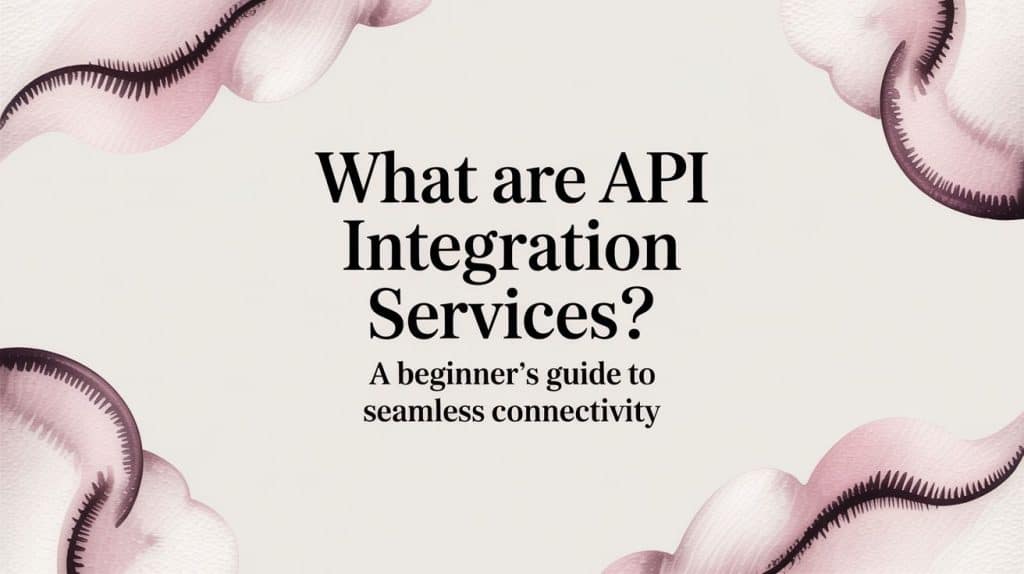
Today the competition in the eCommerce landscape is higher than ever. Software providers building integrations with eCommerce platforms are under the pressure to support as many shopping platforms and marketplaces as possible. This is time-consuming, resource-intensive, and difficult to implement. That’s where eCommerce iPaaS (Integration Platform as a Service) comes in.
eCommerce iPaaS provides a smarter, faster, and more cost-effective way to solve integration development challenges. The most important aspect is that it allows connection with multiple shopping platforms through a single unified API. In this article, we’ll explore how iPaaS solutions simplifies eCommerce integration. Also, we’ll look at how it helps software providers expand their platform coverage, reduces technical complexity and accelerates time-to-market.
What Is eCommerce iPaaS?
eCommerce iPaaS (Integration Platform as a Service) is a unified solution that allows eCommerce software providers to integrate with multiple shopping platforms and marketplaces. It simplifies data exchange processes across multiple platforms. Generally, they include syncing orders, updating inventory, managing product details, and handling customer records. It enables to easily access data from platforms such as Shopify, Magento, WooCommerce, Amazon, and more.
For software vendors, such as order management systems, shipping tools, inventory platforms, and PIM solutions, eCommerce iPaaS offers a faster, more scalable, and cost-efficient alternative to building and maintaining custom integrations for each platform.
Since, instead of managing separate connectors, API versions, and platform-specific quirks, software providers can rely on a centralized API infrastructure that handles all technical complexities in the background.
By using an eCommerce iPaaS, software providers can focus on delivering value to their customers, without worrying about the challenges of backend integration.

Key Challenges of Manual Integration Development with eCommerce Platforms
The importance of developing integration with eCommerce platfroms is clear. Connecting with popular eCommerce platforms and marketplaces allows eCommerce software providers to increase their client base, expand market share, and boost profits. However, there are many pitfalls associated with each integration developed manually.
- Time-Consuming: Developing an integration with one shopping platforms without eCommerce iPaaS can take weeks or even monthes. This slows down overall development process and growth.
- Costly: Developing integrations is expensive, as it requires dedicated resources and specialized developers for each connection.
- Requires Maintenance: When you finally developed an integration it is not the end. Your connections need ongoing maintenance and attention, as eCommerce platforms constantly update its versions.
- Platform Documentation Inaccuracies: Many eCommerce platforms have incomplete or poorly structured documentation, making it difficult for developers to understand and integrate with their APIs effectively.
- eCommerce Platform APIs Specifics: Each eCommerce platform API has its own logic, data formats and specifics. You need to intestigate which data you can work with and what are the peculiarities of integration developent.
These are some of the main difficulties of developing an integraion with eCommerce platforms without a ready-made solution like eCommerce iPaaS. That's why it is hightly important for you to outsource the hard work of developing integrations to a third-party service.
How eCommerce iPaaS Solves Integration Issues

eCommerce iPaaS streamlines the process of eCommerce data integration by providing a centralized solution for connecting with multiple eCommerce platforms. It removes the need for software providers to develop individual, platform-specific integrations, saving both time and resources. iPaaS handles all the technical complexities, allowing businesses to focus on their core offerings.
By using a single unified API, iPaaS eliminates the challenges associated with managing multiple connectors and API versions. Additionally, it simplifies maintenance by ensuring that updates across all platforms are handled automatically, without requiring constant manual intervention. This not only speeds up the time-to-market but also reduces the risk of errors and inefficiencies in data exchange.
Use Cases of eCommerce Software that Can Benefit from eCommerce iPaaS
eCommerce iPaaS enables software providers to connect seamlessly with dozens of shopping platforms and marketplaces, unlocking powerful use cases that enhance their products and increase customer value. Below are some of the eCommerce software that can benefit from iPaaS technology and a list of features that they can implement having a reliable integration with multiple eCommerce platforms.
- Order Management Systems (OMS):
- Fetch orders from eCommerce platforms and marketplaces via one API;
- Sync order statuses, tracking numbers, and cancellations;
- Enable centralized order processing and automation.
- Shipping and Fulfillment Software:
- Import order and shipping details from all connected platforms;
- Push tracking updates back to stores through a unified API;
- Reduce errors and manual input.
- Product Information Management (PIM) Systems:
- Update product attributes, pricing, images, and stock levels in bulk;
- Sync changes across marketplaces in real-time;
- Maintain accurate, centralized product catalogs.
- Multichannel Listing Tools:
- Create, update, and remove listings via one integration;
- Monitor stock levels and prevent overselling;
- Automatically sync listings across marketplaces, such as Shopify, Amazon, eBay.
- Inventory Management Software:
- Get real-time inventory data;
- Automate stock updates across connected channels;
- Avoid overselling and backorders.
Pulling order data from multiple platforms and syncing it in real-time:
Retrieving accurate order data and updating delivery statuses across stores:
Distributing consistent product data across multiple sales channels:
Managing listings and inventory across platforms manually:
Stock inconsistencies across multiple stores:
With eCommerce iPaaS, software providers gain the flexibility to power advanced features and workflows, while reducing development complexity and operational overhead.
API2Cart as the Best eCommerce iPaaS Solution
Using API2Cart as an eCommerce iPaaS solution for eCommerce software providers can be a highly strategic move, especially if your product needs to integrate with multiple shopping platforms and marketplaces.
API2Cart is a unified API integration solution that enables eCommerce software vendors to connect their applications with 60+ leading eCommerce platforms and marketplaces, including Shopify, Magento, WooCommerce, BigCommerce, PrestaShop, and others, at once. As an iPaaS, it acts as a middleware layer that simplifies, standardizes, and automates the data exchange between eCommerce systems and external applications.

Key Capabilities of API2Cart:
- Unified API Architecture: API2Cart offers a single, unified API that allows access to dozens of shopping cart platforms. Instead of building and maintaining individual integrations for each platform, software providers can develop once and scale integrations across all supported platforms.
- Comprehensive Data Access: API2Cart enables operations on key eCommerce data such as orders, customers, products, categories, inventory, shipments, and others. This makes it suitable for a wide range of software types, including shipping management, inventory tools, marketing automation, ERP, CRM, pricing intelligence, and analytics solutions.
- Real-Time Data Synchronization: With support for webhooks and real-time API methods, API2Cart ensures that data between eCommerce platforms and integrated systems is always up-to-date, supporting fast decision-making and automation.
- Scalability and Maintenance: API2Cart handles versioning and platform updates internally, allowing providers to avoid breaking changes and scale without heavy development overhead.
- Secure and Compliant: Security is a top priority. API2Cart uses secure HTTPS protocols, offers IP filtering, and complies with industry standards to ensure the safe transmission and storage of data.
Benefits of API2Cart for eCommerce Software Providers:
- Reduced Time-to-Market: Launch integrations faster without building from scratch;
- Cost Efficiency: Save on development and maintenance costs associated with multiple native integrations;
- Focus on Core Functionality: Let your team focus on enhancing your product’s value proposition instead of handling integration headaches;
- Market Expansion: Reach more merchants by supporting a wider range of eCommerce platforms effortlessly;
- Customization and Flexibility: API2Cart supports advanced customization and filtering options, allowing software providers to tailor integration behavior as needed.
Get started with a free trial today and see how it can transform your integration process. So, all you need to do is to register a 14-day free trial.
Conclusion
As the demand for seamless multi-platform connectivity continues to grow, eCommerce software providers need smarter, faster, and more scalable integration solutions. So, building and maintaining individual connections to every shopping platform is no longer sustainable. In addition, eCommerce iPaaS offers a powerful alternative, enabling software vendors to integrate with dozens of eCommerce platforms through a single, unified API. It simplifies development, reduces maintenance efforts, and helps accelerate time-to-market.
Finally, for companies building tools, including OMS, shipping solutions, PIMs, and multichannel systems, adopting an eCommerce iPaaS can be a true game-changer. It allows you to focus on delivering value to your users while the complexities of platform integration are handled in the background. By leveraging eCommerce iPaaS, software providers gain the flexibility, efficiency, and scalability they need to compete and grow in the evolving eCommerce ecosystem.
FAQs
1. API2Cart – a specialized iPaaS for eCommerce software providers that offers a unified API to connect with 60+ shopping platforms and marketplaces, including Shopify, Magento, WooCommerce, Etsy, Wix, PrestaShop, BigCommerce, Shopee, and others, at once, through a single integration;
2. MuleSoft Anypoint Platform – enterprise level integration and powerful API management;
3. Dell Boomi – cloud-based integration platform best suited to integrate SaaS and on-premise systems;
4. Workato – workflow automation iPaaS that allows simple workflow building;
5. Make (Integromat) – visual integration platform in the case of small and medium-sized businesses;
6. Zapier – straightforward iPaaS application used to automate tasks between well-known web applications.
1. API2Cart - offers a unified API that simplifies eCommerce platform integration, enabling seamless connections with 60+ popular eCommerce platforms and marketplaces, including Shopify, Magento, WooCommerce, Etsy, Wix, BigCommerce, Shopee, OpenCart, TikTik Shop, and others, at once - all through a single integration. While there are several iPaaS providers in the market, API2Cart is unique as it offers a unified API to integrate with various eCommerce platforms to facilitate data synchronization, order management, product updates, and customer interactions. This makes it an excellent choice for eCommerce software providers that require an efficient, scalable API integration solution. an efficient and scalable API integration solution.
2. MuleSoft Anypoint Platform - It is well-known for its multifunctional approach to API management, system integration, and high scalability.
3. Dell Boomi - It is a user-friendly service that provides integration of various systems with emphasis on cloud-based APIs.
4. Integromat (Make) - It has an intuitive interface and allows connecting applications, automating processes and unifying APIs.
5. SnapLogic - A scalable and reliable integration solution based on AI (Artificial Intelligence), especially for large companies.
6. Tray.io - A platform that is used to streamline the API integration with the ability to work in a flexible manner.
These solutions help to simplify integrations, by centralizing multiple APIs and reducing manual processes, which will help the companies to effectively handle complex workflows across different platforms.
On the other hand, iPaaS (Integration Platform as a Service) is a wider solution which provides cloud-based applications to integrate and manage a number of applications, APIs, and services across systems. iPaaS solutions can typically contain capabilities such as data mapping, transformation and high-level workflows.
While both unify integrations, the unified API is more dedicated to offering a single interface for multiple platforms, while iPaaS solutions are more detailed in managing integrations of various enterprise systems.



